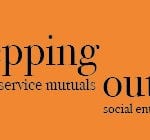 Since The Localism Act was introduced at the end of 2011, bringing both new freedoms for local government and new rights and powers for individuals and communities, there has been a move by internal staff teams to express an interest in running a service currently delivered by their local authority. Employees have been creating social enterprises and public service mutuals in order to ‘step out’ from the local authority. This change can improve the quality of service delivery through a ‘John Lewis effect’ of increased productivity, efficiency, empowerment and staff innovation whilst also creating additional social value such as training and local investment.
Since The Localism Act was introduced at the end of 2011, bringing both new freedoms for local government and new rights and powers for individuals and communities, there has been a move by internal staff teams to express an interest in running a service currently delivered by their local authority. Employees have been creating social enterprises and public service mutuals in order to ‘step out’ from the local authority. This change can improve the quality of service delivery through a ‘John Lewis effect’ of increased productivity, efficiency, empowerment and staff innovation whilst also creating additional social value such as training and local investment.
Stepping out
Craig Dearden-Phillips from Stepping Out recently stated on his company blog that we are in the ‘Innovator / Early Adaptor Stage’ with many watching to see what happens in this first wave. He believes we are at a tipping point due to the fact that between 2010 and 2015, local Councils will have lost up to 40% of their income and will only be able to fund statutory social care costs. Furthermore, he states that it is now occurring to many in Councils that their role as core provider is probably over and that there is an imperative to embrace ‘new, more dynamic, more community-engaged vehicles’ such as social enterprises and mutuals. However, up to now, this activity has mostly been in the field of health and social care, as well as a number of discretionary services, such as libraries, where there are few existing commercial markets to outsource from.
The new environment
Outsourcing to social enterprises and mutuals is less politically sensitive than outsourcing to large, single providers in the private sector. The public service ethos is closely aligned to the concept of doing business for social purpose and communities will be far more supportive for their services going to a mutual that blends money with social capital.
There has been a tendency for councils to want to set up and own their own social ventures; however, the relationship invariably becomes one of dependency which can create undefined service level agreements, resulting in a worse level of service – for more money – where it’s hard to have an evidenced based discussion on performance. Local authority owned trading companies (LATCs) are often offered a degree of permanent protection from the market which can lead to preventing true competition and innovation.
New partnerships
By formalising SLAs, social enterprises and mutuals are in a commercial position to bid for new contracts and have an equal duty of care to all clients, not just their former host. However, many prospective social enterprises wanting to ‘spin out’ will often not have all the capital, skills and leadership required early on and, therefore, joint ventures with private sector companies can be beneficial. This can be seen with the ground breaking schools staff mutual in Hammersmith & Fulham partnering with Prospects Services Ltd, a former public sector spin-out, to benefit from the balance sheet of an £80M specialist provider.
A warning; responsibilities that Social Enterprises and Mutuals aren’t aware of
One important point to note is that many newly set up social enterprises and mutuals may not realise that they have taken on an additional contractual duty as ‘expert’ provider to the client. Recent court rulings mean that strategic vendors (in this case, the social enterprise or mutual) need to warn their client about potential misunderstandings over delivery requirements to ensure business objectives are met. These are often implied responsibilities (not written in the contract terms), due to having expertise that the local authority no longer has and, therefore, many do not understand the additional cost implications and what the social enterprise or mutual is liable for. For a detailed focus on expert responsibilities that these social organisations have, we have an informative White Paper entitled ‘Strategic Vendor Responsibilities – Is Your Vendor Really a ‘Trusted Partner’?
Public sector organisations can often struggle with the scale of the change in provision required by austerity; however the fear of moving services out has to be matched by a bigger fear of trying to keep provision in house. Whilst private providers offer efficiencies of scale with regards to shared services, social enterprises and mutuals offer unique benefits to local authorities in terms of service transformation due to an ingrained connection to the local community.

